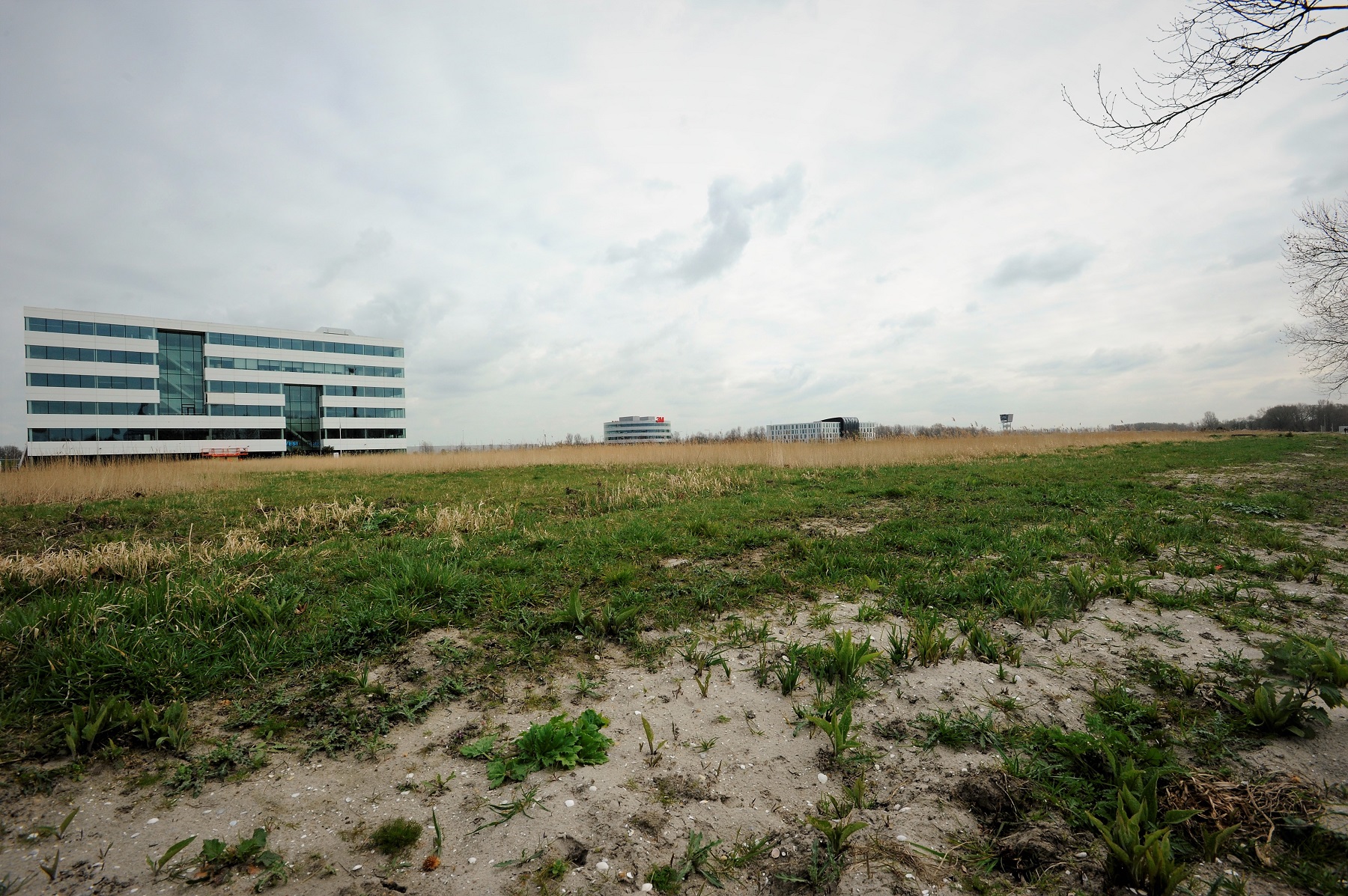TU Delft wants to collaborate with industry more. A special fund of hundreds of millions of euros for real estate on campus should ensure that more companies locate here.
Companies often do not get the financing and this stops them locating on campus. (Foto: Marjolein van der Veldt)
People have been talking about it for years. Wouldn’t it be great if an MIT on the Schie would rise in Delft? TU Delft needs a ‘business campus’, just like its illustrious peers such as MIT, Stanford and Cambridge. After all, shorter lines with businesses stimulate collaboration. And that collaboration is needed. However, Technopolis, the industrial estate south of TU Delft, is not bursting at the seams. Since the estate was prepared for development in 2005, only a handful of companies have located here. Funding is often hard to get. A new real estate fund should change this.
TU Delft does not have the remit to finance real estate for external entities. This is not its core business. This is why TU Delft is teaming up with the ASR insurance company that established a special fund called the Dutch Science Park Fund.
Not the run of the mill real estate
There is no precedent in the Netherlands. Never before has there been an institutional investor with a fund in real estate for campuses. Potential tenants are usually interested in short-term rental contracts and flexibility. Furthermore, they often need exceptional rather than standard real estate such as buildings with laboratories or clean rooms.
“Property developers traditionally put their money into low-risk commercial spaces,” explains Paul Althuis, the Director of TU Delft’s Valorisation Centre. Althuis is very pleased that the fund has been created. It took four years to get up and running and he was closely involved. “We really have a problem. The property development on campus for companies is all but still, and this while real estate is an important tool to stimulate collaboration between TU Delft and businesses. We were too optimistic that this would happen organically in the past.”
The Dutch Science Park Fund is starting with TU Delft but will target the largest 10 campuses in the Netherlands. By setting up a national real estate fund for all the campuses, buildings and tenants, ASR can spread the risk, Luc Joosten, the Fund’s Director, told the ‘Financiele Dagblad’ (FD, financial newspaper) earlier this week. Joosten did not want to quote precise figures, but he implied that the Fund will contain hundreds of millions of euros. Part of this will come from ASR itself, and part from external financiers.
TU Delft decides
The university itself will decide which companies may locate on the campus. If companies wish to collaborate with TU Delft and they fit into the ‘ecosystem’, the Executive Board will refer them to the ASR Fund. If the Fund also sees a solid business case, university will give them the ground on leasehold.
So will buildings sprout up like mushrooms now? Danielle ten Veldhuis of TU Delft’s Communications Department says that getting companies to locate on campus is not an end in itself. “The intention is to develop a strong public-private ecosystem around TU Delft so that we have a greater impact on society. Attracting the right partners to collaborate with is crucial. Locating companies on campus is a tool and not a goal in itself.”
Building for scale-ups
One of the first buildings to be built with support from the Fund is a building for scale-ups –TU Delft spin-off companies that have outgrown Yes!Delft and need to move. The building, that may be called NextDelft, must be around the same size as that of Yes!Delft.
Do you have a question or comment about this article?
tomas.vandijk@tudelft.nl


Comments are closed.